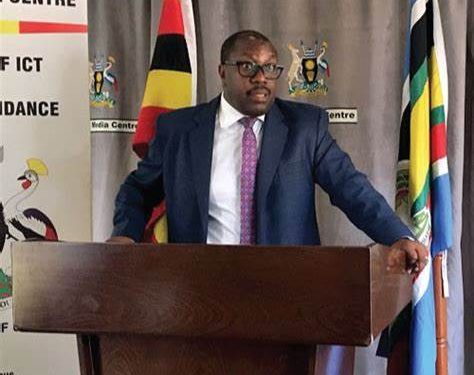In a staggering revelation that has rocked Uganda’s administrative corridors, Edgar Agaba, the erstwhile Chief Executive Officer of the National Lotteries and Gaming Board, finds himself embroiled in a web of corruption and embezzlement charges totaling a jaw-dropping 700 million shillings. The gravity of this situation cannot be overstated, as it represents a severe breach of trust and a flagrant abuse of power at the highest echelons of government authority.
At the heart of these allegations lies a tale of greed, deception, and betrayal of public trust. Agaba, along with his accomplice John Patrick Kazoora, stands accused of orchestrating a sophisticated scheme to siphon off funds meant for legitimate purposes into their own coffers. The sheer audacity of their actions is matched only by the brazenness with which they executed their plan, leaving a trail of financial ruin and shattered faith in their wake.
The details of their alleged misdeeds paint a damning picture of wanton disregard for fiscal responsibility and ethical conduct. Prosecutors contend that between October 17th, 2018, and February 14th, 2019, Agaba and Kazoora, aided by others still at large, systematically looted 710 million shillings from the National Lotteries and Gaming Board. This staggering sum, intended to further the board’s mandate of regulating and supervising gaming and lotteries activities in Uganda, instead found its way into the pockets of those sworn to uphold the public interest.
But the extent of their deceit did not end there. In a series of calculated maneuvers, Agaba and his co-conspirators purportedly fabricated requisition documents totaling 470 million shillings, falsely claiming expenses for hotel services at the Imperial Royale Hotel. These services, purportedly rendered during a four-day sensitization program for Kampala Central Division technical staff, were in reality conducted over the course of a single day. The brazenness of this deception is matched only by its sheer audacity, as Agaba and his cohorts sought to exploit their positions of authority for personal gain at the expense of the public purse.
Furthermore, the prosecution alleges that Agaba and Kazoora, under the guise of sensitizing Boda Boda riders from Kawempe Division, misappropriated an additional 480 million shillings. Despite claiming to conduct a four-day program, they reportedly only carried out the sensitization exercise once, pocketing 360 million shillings in the process. This wanton disregard for the truth and the rule of law lays bare the depths to which Agaba and his accomplices were willing to sink in their pursuit of ill-gotten gains.
The fallout from these revelations has been swift and decisive. Finance Minister Matia Kasaija wasted no time in ordering Agaba to vacate his office and hand over all necessary files to facilitate a thorough investigation. This move, while necessary, serves as a stark reminder of the pervasive culture of corruption that continues to plague Uganda’s public institutions. It is a stain on the fabric of society that must be eradicated at all costs if the country is to realize its full potential and prosper.
In the face of these damning accusations, Agaba and Kazoora have pleaded not guilty to all charges and have sought bail pending further proceedings. However, the weight of evidence against them is substantial, and the wheels of justice must be allowed to turn unimpeded. The Anti-Corruption Court, under the stewardship of Chief Magistrate Pamela Lamunu, has rightly exercised its authority by granting bail under stringent conditions. Yet, let there be no mistake: the pursuit of justice must be relentless and uncompromising if we are to root out corruption wherever it may be found.
As this saga unfolds, it serves as a sobering reminder of the corrosive effects of corruption on society at large. It erodes public trust, undermines democratic institutions, and stifles economic growth and development. The case of Edgar Agaba and John Patrick Kazoora is not an isolated incident but rather symptomatic of a broader malaise that afflicts our nation. It is imperative that we, as a society, stand united in our condemnation of such egregious behavior and demand greater transparency, accountability, and integrity from those in positions of power.
In conclusion, the alleged embezzlement of 700 million shillings by Edgar Agaba and his accomplices represents a grave betrayal of the public trust and a stark indictment of the state of governance in Uganda. It is incumbent upon all citizens to demand justice and hold those responsible to account for their actions. Only then can we hope to build a future where corruption has no place and where the principles of honesty, integrity, and accountability reign supreme.







Discussion about this post